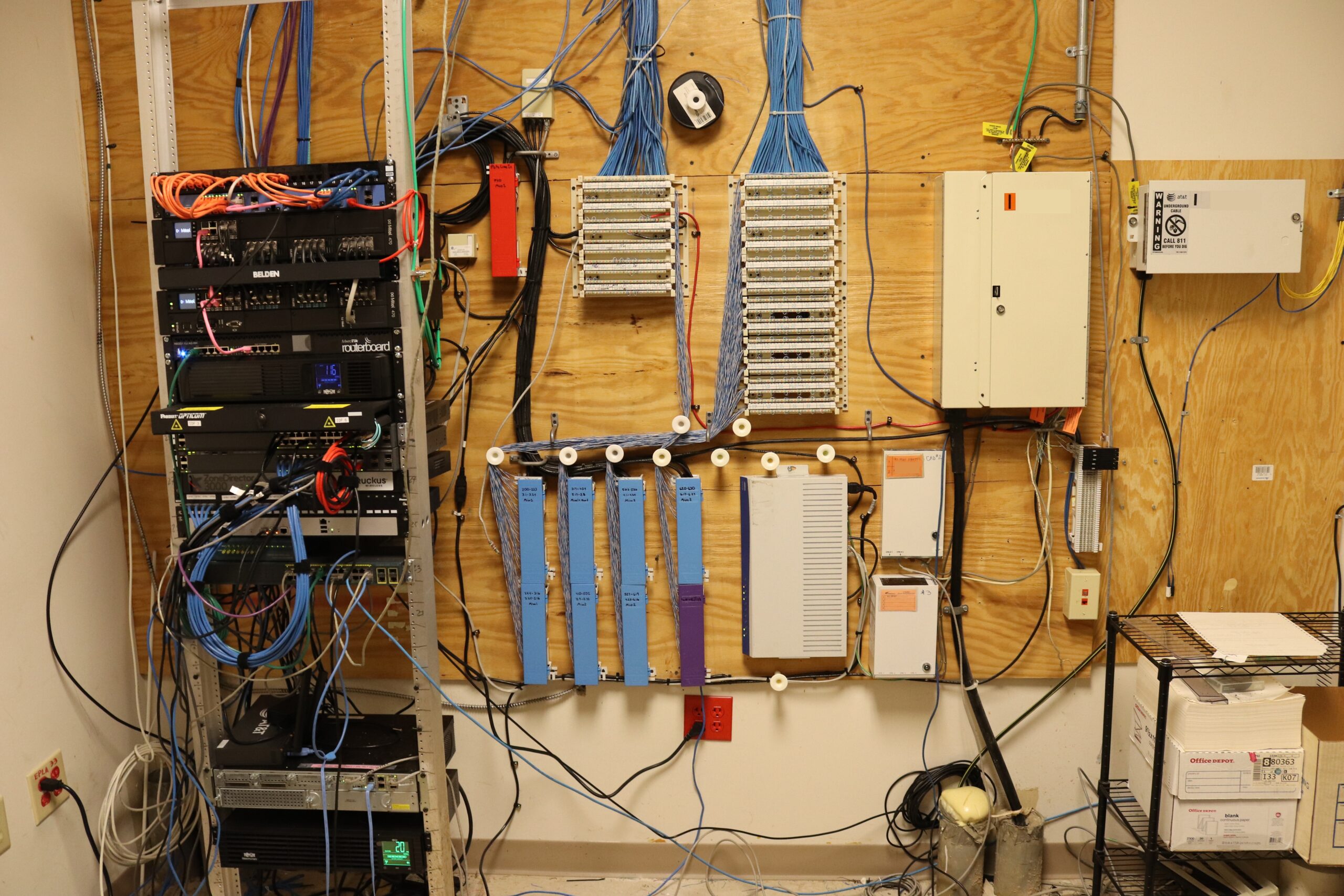Hotel guests may not be familiar with the term “PBX” or know that it stands for “Private Branch eXchange,” but they interact with it whenever they use the speed dial on their room phone to contact the front desk, order room service, or request a wake-up call.
Table of Contents
Even though many guests rarely use their room phone for outside calls, a hotel PBX still plays a crucial role in delivering a positive guest experience. Whether you choose a premise-based or hosted PBX system (we’ll explore the differences shortly), the PBX enhances guest services by providing easy access to essential amenities, including room service, wake-up calls, and emergency/E911 calling—access to which is also mandated by federal law.
Given the ongoing staffing challenges in the hospitality industry, with a 9% unemployment rate in leisure and hospitality as of August, hotels are finding ways to support guests with fewer staff members. A PBX system can automate many guest services through features like Automated Attendant and Interactive Voice Response (IVR), reducing the need for direct staff interaction. As noted by Cedar Hospitality Partners CEO Antoine Berberi in a Hospitality.net article, outsourcing and automation are vital strategies for cutting labor costs while maintaining service quality. This is where a robust PBX system can be invaluable.
If you’re considering implementing or upgrading a PBX system for your hotel, here are some key considerations to help you choose the best option.
Hosted PBX vs. Premise-Based PBX: Which is Right for Your Hotel?
When deciding on a PBX system, the first step is to determine whether a hosted (cloud-based) or premise-based solution is the better fit for your property. Regardless of your choice, the system’s functionality will be seamless for both guests and staff. Hosted PBXs typically require less physical hardware on-site, whereas modern premise-based systems have significantly reduced hardware requirements compared to their older counterparts.
A hosted PBX is managed remotely at the provider’s data center, while a premise-based PBX keeps all its servers, including the main controller, on-site at the hotel. Each type of PBX has its advantages, so the decision should be based on your hotel’s specific needs.
Cost Considerations:
- Premise-Based PBX: Generally, a premise-based PBX offers a lower total cost of ownership over time, especially as the system ages. These systems usually come with a one-year warranty, after which hotels can opt for extended warranty agreements, software support, or a “Time & Materials” model where you pay for service only when needed.
- Hosted PBX: With a hosted PBX, you pay a monthly recurring cost that covers support and upgrades, ensuring your system always has the latest features.
Connectivity Options:
- A hosted PBX requires the vendor’s SIP telecom services, whereas a premise-based PBX can use either SIP services or traditional lines like PRI, T-1, or copper (“POTs”) trunks. SIP trunking is generally recommended for its cost-effectiveness and flexibility.
Technology and Integration:
- Hosted PBXs offer superior compatibility with current and future applications, making them ideal for hotels that plan to integrate multiple technologies or manage multiple properties. However, for hoteliers seeking a long-term, stable solution, a premise-based PBX may provide the best value, especially if you plan to keep the system in place for several years.
Choosing the Right Communications Provider
After deciding on a PBX system, the next step is to select a communications provider. Here’s what to look for in a provider:
Key Qualities:
- Good Listening Skills: Your provider should listen to your specific needs and offer tailored solutions that best fit your hotel.
- Respect for History: Providers that support older, legacy PBXs can offer short-term solutions that maximize your existing equipment’s lifespan.
- Strong Partnerships: Ensure your provider has partnerships with top hospitality PBX and voice technology brands, like Avaya, Mitel, NEC, and Nortel, to ensure reliable service and support.
- Flexibility: Choose a provider that understands the unique needs of the hospitality industry and offers both premise-based and hosted PBX options.
- Reliability: Investigate what failover options the provider offers in case of system outages.
- Value: Look for a partner who can help you reduce communication costs and improve resource productivity. An audit can be beneficial in identifying cost-saving opportunities.
- Integration: Ensure the PBX system integrates seamlessly with major property management systems (PMS) like Oracle, MSI, Galaxy, and others.
- Support: When issues arise, you’ll want prompt, reliable support. Choose a provider with a reputation for fast, effective problem resolution.
Learn More About Hotel PBX Systems
To explore how a PBX system can enhance your hotel’s guest experience, consider speaking with a provider who specializes in hospitality solutions. Whether you choose a hosted or premise-based PBX, ensuring it meets your property’s needs is crucial for long-term success.
Additionally, consider other ways to optimize guest experiences with fewer staff resources by exploring managed IT services, Internet solutions, and contact center services tailored to the hospitality industry.
By selecting the right PBX system and provider, your hotel can streamline operations, enhance guest services, and reduce costs—all while maintaining high standards of service quality.

